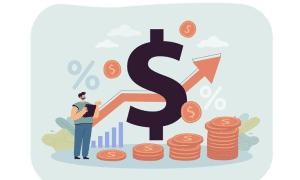Behavioral economics is an ever-expanding discipline that belongs to the intersection of psychology and economics aiming at describing, forecasting, and controlling the people’s behavior in terms of managing their money.
In America this multifaceted approach is revolutionizing how people approach the whole concept of finance, savings, investments, and planning for the future period. First, it was supposed that people are the rational entity with specific purposeful mechanisms that they use to make the decision.
However, this more often as not, turns out to be a fallacy in real life situations. Applied Cognitive and Reference Behavioral economics sort out all the theoretical concepts and puts more light on the practical aspects of people’s behavior in the field of finance.
The role of behavioral economics in modern finance

Contemporary behavioral economics has won the trust of the mainstream society and impacted multiple spheres of today’s finance. It is claimed that the existing financial models do no work properly referring to the fact that they ignore such essential aspects as the irrational behavior of an actor.
These are lacking in standard economic models, and this is why behavioral economics brings in human psychology into the equation. For example, the psychology heuristics have effects on money decisions, for example overconfidence, endowment effect, and anchoring.
This awareness helps the financial planner and the policymaker and companies to come up with ways that address behavior that exists among people. As such, resulting in better financial planning and policy formation and execution.
Furthermore, behavioral findings can be useful when it comes to making changes with regard to raising the level of financial literacy. Thus, if the psychological barriers that people encounter are acknowledged, the impartation of knowledge while in these educational programs can be geared towards overcoming the barriers resulting into wiser financial decisions.
The impact on personal finance
Thus, understanding the interaction between psychology and neoclassical economics is as essential to individual finance as it is to any other field of knowledge. To provide an example, the ‘nudge’ approach implies influencing people’s decisions by providing them with suggestions on how to act, without putting formal limitations on their actions and freeing them from responsibility.
For instance, mandatory participation in pensions improvement, which means that by default employees are subscribed to the pension plans, proves much more effective than the system where the employees have to sign up themselves.
In addition, mobile applications of the banking sphere and money management applications incorporate behavioral economics to increase the rate of savings, reduce the number of owed debts and control the spending. Such tools usually employ anything from reminders, alerts, and other stimulations that help the users adhere to their financial targets.
In other words, by factoring in the psychological processes that govern fiscal behaviors, such tools and strategies empower the people to make far more sound monetary decisions, therefore achieving far more financially secure futures.
Behavioral finance and investment strategies
Yet another ground where behavioural economics has found application is the field of investments. The classic investment theories are anchored on rationality but feelings and heuristics tend to play an important role in the investment decisions. Behavioral finance seeks to establish them and possibly come up with ways of reducing their impact.
For example, it is the self-same impulse that causes blindly imitating the stock market. Thus, behavioural economics keeps people aware of this effect and warns against it. Online brokers and financial advisors are using behavioral finance strategies to construct portfolios that reduce the risks that are inherent in investments while increasing returns.
Additionally, some of the most pervasive biases such as overconfidence can be tackled, hence, improve on investors’ expectations and prevent them from investing in high-risk projects that would otherwise be detrimental to their investment goals. Hence, behavioral finance is important as far as building a sound long-term investment is concerned.
The future of behavioral economics in financial decision-making
Given the fact that the impact of behaviorial economics is expected to increase in the future, the latter is expected to occupy an even more important place in the sphere of financial decision making. Further improvements in technology like AI will, therefore, include the behavioral data in regard to providing the best strategies and solutions in the financial industry.
Furthermore, the regulatory authorities and policymakers are adopting the BI more when developing the financial regulations. By getting real life picture rather than the theoretical prediction, these regulations can be actually efficient in the sense of consumer protection and financial stability.
Last but not least, firms together with financial entities will persist in using BE for developing materials and offerings that would appeal to the consumers’ deeper sentiments. With these developments, the pros in a financial service will cover all parties that will enable a fair and efficient environment.






